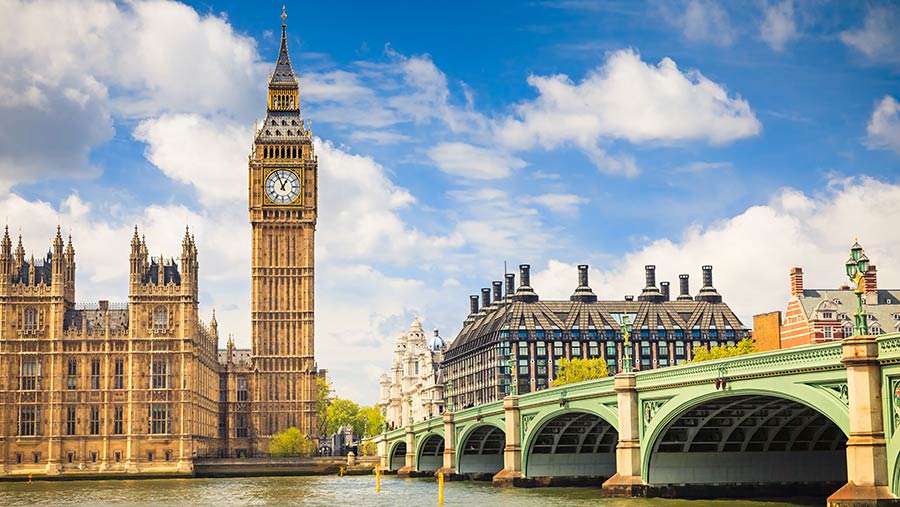Farmers turn their backs on the political process
 © Sborisov/Adobe Stock
© Sborisov/Adobe Stock Politicians vying for a share of the farming vote in next year’s general election will have their work cut out, with almost one in four farmers saying they will not vote.
That’s according to our latest Farmers Weekly Sentiment Survey, which asked farmers how they would vote if there was an election tomorrow.
See also: Farmer support for Tories waning as problems mount up
Perhaps not surprisingly, the party of choice overall remains the Conservatives, though its share of the vote has slipped again.
This is down from 42% last year to just 39% this year – with the Liberal Democrats and Labour in second and third place respectively.
But the second most popular answer to the question about voting intentions was “I would not vote”.
24% of the 600-plus respondents gave that answer, while 20% said other smaller parties or individuals would attract their support.
Regional differences
The survey did throw up some interesting variations in intended voting patterns.
For example, support for the Tories was strongest in the South East and Yorkshire (49% and 47% respectively), and among larger farmers – with 51% of those farming more than 500ha saying they would vote Conservative.
However, the picture was very different in the devolved regions, with just 13% saying they would vote Conservative in Northern Ireland, rising to 21% in Scotland and 29% in Wales.
And while the Conservatives were still the most popular party among Welsh farmers (with Plaid Cymru second on 17%), in Scotland, Labour topped the ranking, with the Scottish National Party in third spot on 9%.
Importance of voting
Despite the apparent disenchantment with the political process, NFU deputy president Tom Bradshaw said it was hugely important that farmers did use their votes.
“However much we might like to pretend otherwise, politics has a huge influence on what we are able to do on farm, and the balance between food and the environment,” he said.
“Utilising your voice is absolutely essential. If you disagree with something that’s going on, vote for what you think might look better.
“Abstaining does not tell people how you feel. It’s really important that farmers come forwards and make their voices heard.”
As for whether politicians were really listening to rural voters, Mr Bradshaw said it was essential that they did.
A recent NFU poll had shown that two-thirds of adults said that rural matters would influence the way they vote, with 84% saying food production targets were just as important as environmental targets.
“That’s overwhelming support for what we as farmers do. I think they have to listen,” said Mr Bradshaw.
Who impressed, who annoyed…
As in the past, we also asked readers as part of the Sentiment Survey which politicians had impressed them and who had annoyed them the most in 2023.
As ever, the responses reflected the “marmite” effect most politicians tend to have.
The five most impressive, in order of merit, were:
- Rishi Sunak
- Boris Johnson
- Sir Kier Starmer
- Nigel Farage
- and, perhaps surprisingly, Penny Mordaunt (whose sword-carrying endeavours at the King’s coronation clearly struck a chord with some people).
The five most annoying were ranked as:
- Sir Kier Starmer
- Therese Coffey
- Jacob Rees-Mogg
- Boris Johnson
- Rishi Sunak
Conservative voting farmers in the South East were the most likely to put Labour leader Sir Kier Starmer at the top of their “most annoying” list.
Those in East Anglia singled out Therese Coffey, former Defra secretary and MP for Suffolk Coastal since 2010.
